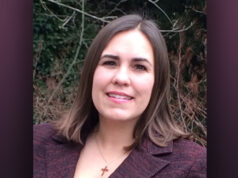When you die, what you leave behind goes to your heirs, the people who inherit your estate. This can cause a positive result or it can cause difficulties. Therefore, it’s a good idea to consider your heirs’ situations before leaving their inheritances in traditional ways.
There are many reasons why a person might prefer to receive his or her inheritance through a lifetime Trust rather than by outright gift.
Designed properly, the Trust can give an heir all the feeling of outright ownership with none or very few of the risks associated with outright ownership.
Maybe you think the only reason to set up a Trust is to protect the heir from his or her own financial foolishness. “Spendthrift” protection can still be a function of a Trust, but it has not been the major reason for inheriting by Trust in the USA for at least the last fifty years.
The beneficiary of a Trust can also be the trustee or co-trustee of the Trust depending on how the Trust is designed to buy modafinil online . The Trust can be written so broadly as to enable it to provide the heir with anything the he might desire without proving need. It could also be so narrowly drawn that the beneficiary cannot receive anything from the Trust without proving need
The key to a positive outcome is the design of the Trust document. With the right words, inheriting by Trust can be a gift to the heir that cannot be accomplished any other way.
For example, with proper Trust design an heir may gain:
1. Asset Protection from Creditors
If a Trust beneficiary gets sued and has a judgment against him, the heir could lose whatever is owns outside of the Trust, but the Trust assets cannot be touched.
The trustee can pay the bills of the heir directly and never subject any Trust assets to risk of being lost in this manner.
This kind of asset protection is a popular feature of Trusts for most U.S. citizens. Asset protection is a complex subject, subject to all kinds of risks including the possibility of not holding up to legal scrutiny. However, the cost to put a Trust in place is minimal compared to trying to protect the assets after having been inherited. Often, when inherited without a Trust, it is simply not even possible to achieve creditor protection in any cost efficient manner.
2. Death Tax Planning
Leaving property to an heir in Trust is often the only way to do a wide variety of death tax planning. This complex subject depends on many factors of a specific individual or situation.
For example, millions of dollars can be inherited through a Trust and over time, that Trust principle could grow to a billion dollars (why think small?). When the original heir passes away, the next person in line could inherit the Trust estate totally free of buying generic levitra . Another example is that the property could continue in Trust forever and never be subject to federal death taxation — ever.
3. Built-In Prenuptial Contract
Quite apart from typical creditor protection is the protection from the economics of marriage. For instance, let’s say that a widower inherits from his wife through a Trust. Not only was the wife assured that her assets won’t go to the husband’s next spouse, but also her husband is under no pressure from his next spouse to share what was inherited before they even married. Both spouses are free from such worries without actually doing a separate prenuptial contract.
4. Certainty of the Future Heirs
A Trust says who is next in line to inherit when the original heir passes away. Not only that, but with the right design, it can even give the first heir the opportunity to fine-tune who inherits at his or her death.
Take it from a probate attorney who has had to straighten out some sad and expensive messes in probate court! Looking at what can happen after you are gone is the best way to plan your estate so that it benefits the people you leave behind in ways you would prefer.
By Gale Allison, founder of the Allison Firm, PLLC. She delivers first-class legal counsel from 30+ years of probate, estate and tax experience. An IRS Estate and Gift Tax Attorney before entering private practice, Ms. Allison helps you probate, resolve and prevent estate problems. As a recognized speaker for professional and lay groups, she has deep knowledge of probate, estate taxes, estate planning, and estate disputes. She practices what she preaches as a “Boomer” and “Sandwich Generation” caregiver.
Attending top schools, she earned her BA (University of Georgia 1973), Juris Doctor (University of Tennessee 1975), and a Masters of Laws in Taxation (Emory University 1980). She is licensed to practice in Oklahoma, Tennessee, and Georgia and before the U.S. Tax Court, the 4th, 5th, 6th, and 10th Circuit Courts of Appeal and the United States Supreme Court.











